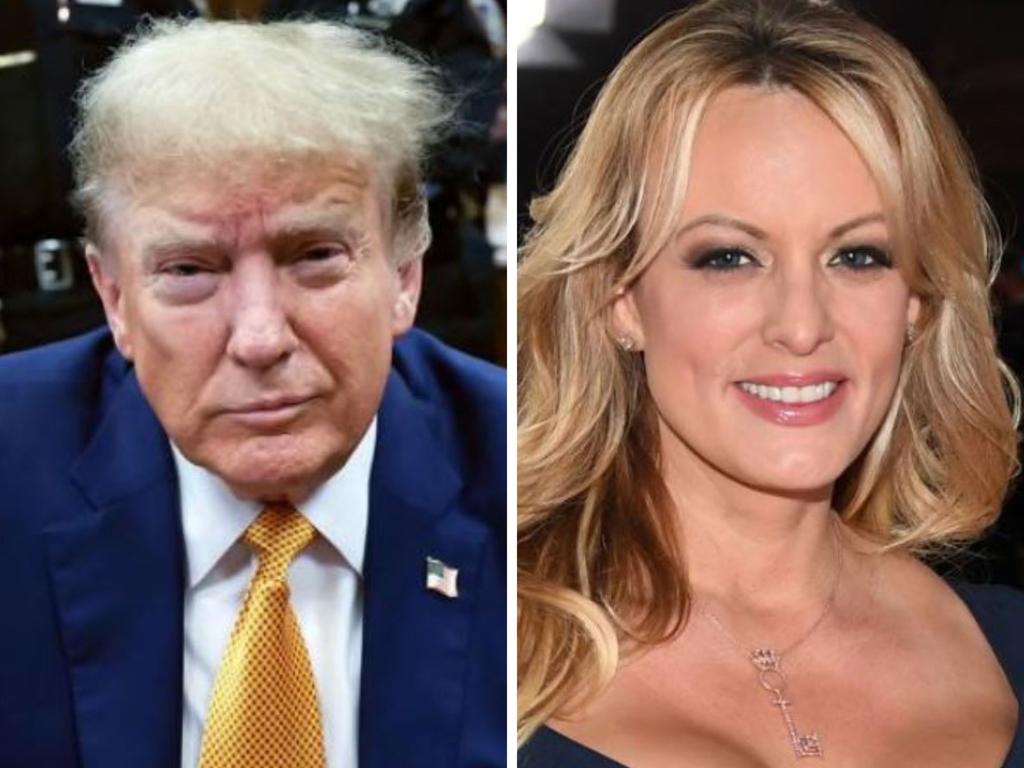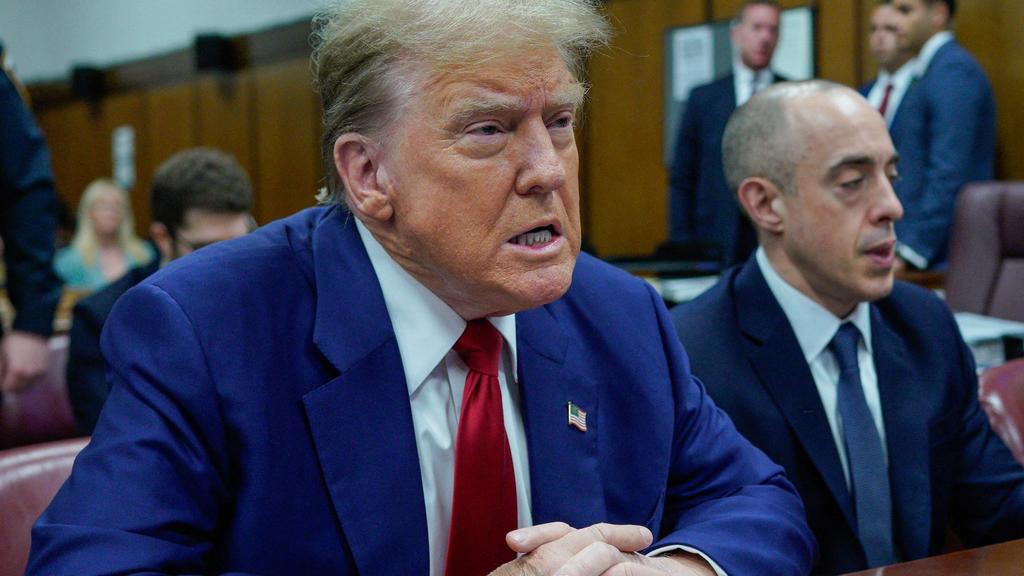This article is more than
7 year oldMedia reacts to Trump’s FBI inquiry: ‘The worst and most perilous day in Trump’s Presidency’
“You would have to say this is the worst and most perilous day of Donald Trump’s young Presidency,” CNN’s political analyst Gloria Borger concluded within hours of the House Intelligence hearings starting overnight.
Among the bombshells that have left Trump’s White House scrambling for answers are the suggestions his campaign staff colluded with the Russian government to win the November election as well as the FBI totally discrediting Trump’s allegation that former president Barack Obama wiretapped his phone.
“In this hearing over the last bunch of hours we have seen the director of the FBI rebut Donald Trump directly,” Borger said. “They are going to have a hard time figuring out how to handle it.”
Other media figures echoed the sentiment that Trump had suffered an awful political blow.
I had said Friday was the worst day of Donald Trump's presidency. I was wrong. It is today.
— Joe Scarborough (@JoeNBC) March 20, 2017
This hearing SUCKS for Trump. Wow.
— Ben Shapiro (@benshapiro) March 20, 2017
To believe Trump on wire-tapping at this point, you have to believe that James Comey is lying in a public Congressional hearing.
— Chris Cillizza (@TheFix) March 20, 2017
Meanwhile, a former Republican congressman has given his own damning assessment of the reality star-turned leader of the free world: Donald Trump isn’t “intellectually qualified to be President of the United States.”
“He does not practice in details, nor understands the finer points of domestic or foreign policy,” David Jolly told CNN.
“When he throws out a wiretap charge, what does that mean? We know he’s lying about that, but he doesn’t understand what a FISA [Federal Intelligence Surveillance Act] court is. He doesn’t understand that he just made an allegation of a felony, he doesn’t understand that he’s crippling the United States on a world stage. That speaks to more than credibility, that speaks to intellect.”
The American media is having a field day with the hearings, while one commentator has likened the effect of “Trumpism” on the country to a form of “psychosis.”
“Trumpism as a social-psychological phenomenon has aspects reminiscent of psychosis, in that it entails a systematic — and it seems likely intentional — attack on our relation to reality,” Joel Whitebook wrote in The New York Times.
‘TRUMP IS GOING TO FAIL’
The ABC’s Q&A program last night dedicated an entire episode to Trump’s presidency and his running battle with the media.
Panellist and former director general of the Al Jazeera Network, Wadah Khanfar, said on ABC’s Q&A program that Mr Trump didn’t understand what being a statesman meant and he was treating presidency like a show.
“I think Trump is a big joke. I think Trump is going to fail,” he said.
“He came from a show and he thinks that he can continue running a show.
“I think he didn’t realise during elections you may have a show. Sometimes all of us have shows during elections, but when it comes to real office, now you are a statesman. Trump doesn’t really understand what that means. So he continues to run a show.
“Now, will that deliver to the state, to the public, to this particular audience, to the people who he promised to enhance the reality? Is he going to be able to deliver with this kind of show of the tweets and making jokes about the media and so on and so fourth? I don’t think so.
“This could continue for a while. This could be entertaining for all of us, but he is not a statesman and, therefore, I think he is going to fail and even his followers are going to realise they have been misled.
“I don’t see that he is the best person to really lead.”
.@khanfarw thinks Trump doesn't understand being a statesman. @terrimbutler says we have a more broad trust issue #QandA pic.twitter.com/iLam0r2on2
— ABC Q&A (@QandA) March 20, 2017
Joining Khanfar on the panel was Claire Wardle of First Draft News, an organisation that attempts to deal with the challenges of “fake news”.
She hit back at her fellow panellist and said Mr Trump’s supporters loved that he wasn’t a mainstream president and desperately wanted to believe the things he said.
However, she said Mr Trump’s constant use of Twitter could be a problem because his followers would believe whatever he said.
“He can go directly to his audiences and say whatever he likes,” she said.
Wardle said the more Mr Trump claimed things were fake news, the more people would believe it.
“What he is essentially saying is, ‘Don’t trust anyone else, follow my Twitter account and trust me’,” she said.
“That’s why it is so dangerous. In a democracy we have to have free press.”

Liberal senator and Social Services Assistant Minister Zed Seselja said people were becoming too obsessed with personalities, such as Mr Trump, instead of the real issues.
“There have been a number of journalists from mainstream news outlets in the US after the election who acknowledged they probably needed to take a look at themselves in terms of how they covered Trump,” Senator Seselja told Q&A.
“Journalists would argue they were doing a service because we didn’t think he was good for democracy or whatever it might be. Journalists have a responsibility to cover things as fairly as they possibly can without putting too much of their own slant on it.
“But I think Trump, President Trump, and so much discussion about it — and, let’s face it, he makes very good copy for our news outlets — discussion and focus on a personality sometimes misses what is actually what and why it was that the people in the United States chose to elect him, and there are a number of reasons.”

Senator Seselja said people in the US felt social dislocation and feared social change, and those issues weren’t being focused on as much as Mr Trump himself.
“If you look at some of the forces, the economic forces, the dislocation people suffered, feeling of social dislocation and social change and those ideas around sovereignty with things like border control, which of course President Trump tapped into — those are real fears,” he said.
“Those are real concerns and clearly they were real concerns for many people. I suppose the more that those concerns were dismissed and the more they were called racist, if you’re concerned about immigration, that may have strengthened the decision making of people who were choosing to buck what they felt much of the media and much of the elite was telling them to do.
“So I think we shouldn’t get completely obsessed with personalities. I think we should look at some of the underlying causes.”
Mr Seselja said the same thing happened with Brexit, where people supported a certain side just to go against what the majority of media reports were telling them was the right decision.
Newer articles
<p> </p> <p>New Caledonia’s international airport is closed and Australians are advised to exercise a high degree of caution, as protests turn deadly.</p>
Taylor Swift concert photo horrifies internet
Sean 'Diddy' Combs asks judge to reject lawsuit alleging rape of 17-year-old girl in 2003
Ukraine finds itself in a grave situation. Russia appears to be advancing
Ellen to make TV comeback after two years
How the West's plan to punish Russian oil backfired
Will Zionism survive the war?
Putin's Preparing Better Than Us for a Long War
Putin’s choice of new defence minister shows he’s preparing for confrontation with the West
U.S. threats led to rupture of vital military ties, Nigerien leader says




